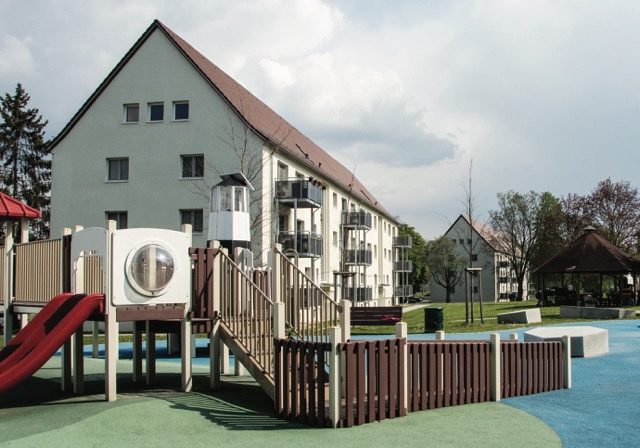
By Kari Hawkins
Army Materiel Command
REDSTONE ARSENAL, Ala. – Nearly a year after assuming responsibility for all Army housing, Army Materiel Command hosted a comprehensive review of the sweeping reforms and improvements made across the enterprise to ensure Soldiers and families have access to high quality on-post housing.
During a housing summit Jan. 14-16 at AMC headquarters at Redstone Arsenal, representatives of the Army’s seven privatized housing companies and Army leaders from 34 installations reviewed strategies and programs to provide the best options for Soldiers, civilians and their families.
“We are absolutely committed to provide safe and secure housing on every installation, and making every installation an installation of choice for our Soldiers and families” said Gen. Gus Perna, commander, AMC. “The summit is another step in our commitment to hold ourselves and privatized housing companies accountable to provide a high-quality standard of living and to earn back the trust of our housing residents.”
Since March 2019, the Army and AMC have set conditions for improvements, beginning with visits to 100 percent of housing units, the establishment of 24/7 housing hotlines at every installation, and quarterly town halls hosted by installation leadership. In July 2019, more than 25,000 residents provided input through the Resident Satisfaction Survey that gave the Army insight into housing experiences and further pinpointed issues that needed to be addressed. In addition, an Army Inspector General report yielded feedback to improve housing.
“The steps we took in the spring and summer of 2019 improved our visibility of the housing landscape and allowed us to lay out a way ahead for course correction,” Perna said.
Other significant initiatives in 2019 included:
- Hiring more than 100 additional staff at installation housing offices to provide quality assurance and control checks on work being done in homes, with the goal to have 100 percent of homes between occupancies, 100 percent of life, health and safety work orders, and 5 percent of all work orders checked;
- Revising the incentive fee structure with the housing companies to better account for resident and installation leadership feedback;
- Providing full access for garrison commanders to housing work orders so they can execute the quality control measures needed to ensure issues are properly fixed the first time;
- Creating mobile apps as an additional method for residents to submit and track work orders;
- Establishing a Housing Environmental Health Response Registry through the Army Medical Command to address housing health or safety concerns;
- Senior Army leaders meeting regularly with RCI company executives to review housing properties and provide oversight.
The Army also joined the Air Force and Navy to develop a Resident Bill of Rights, expected to be signed later this month that will empower service members and their families to hold housing providers accountable.
While these initiatives have yielded progress and improvements, Perna said it will take time to rebuild relationships with housing residents and develop a strategy to ensure quality reinvestment.
The Housing Summit provided a forum for Army leaders and RCI companies to work together on determining the best way to re-invest more than $500 million in funds from the companies and for the Army to develop a holistic investment strategy for Army-owned housing and barracks that will prioritize resources across installations.
During the summit, Army leaders reviewed the current status of housing with representatives of RCI companies BBC, Hunt, Michaels, LendLease, Corvias, Lincoln and Clark. The seven companies have all signed 50-year agreements to maintain, manage and lease more than 87,000 houses at 44 U.S. and overseas installations, and re-invest in those properties to maintain safety and quality.

“We still have much work to do, and rest assured this is a continuing priority with Army senior leaders. We are in this for the long haul,” Perna said. “We remain steadfast in holding ourselves and privatized housing companies accountable to provide safe and secure housing on our installations. We are investing in long-term planning for future oversight, and enacting a set of policies and programs that will improve residents’ quality of life. At the end of the 50-year contracts, our expectation is that our housing units are in significantly better condition than they were at the beginning of the contracts, and better than they are today.”
